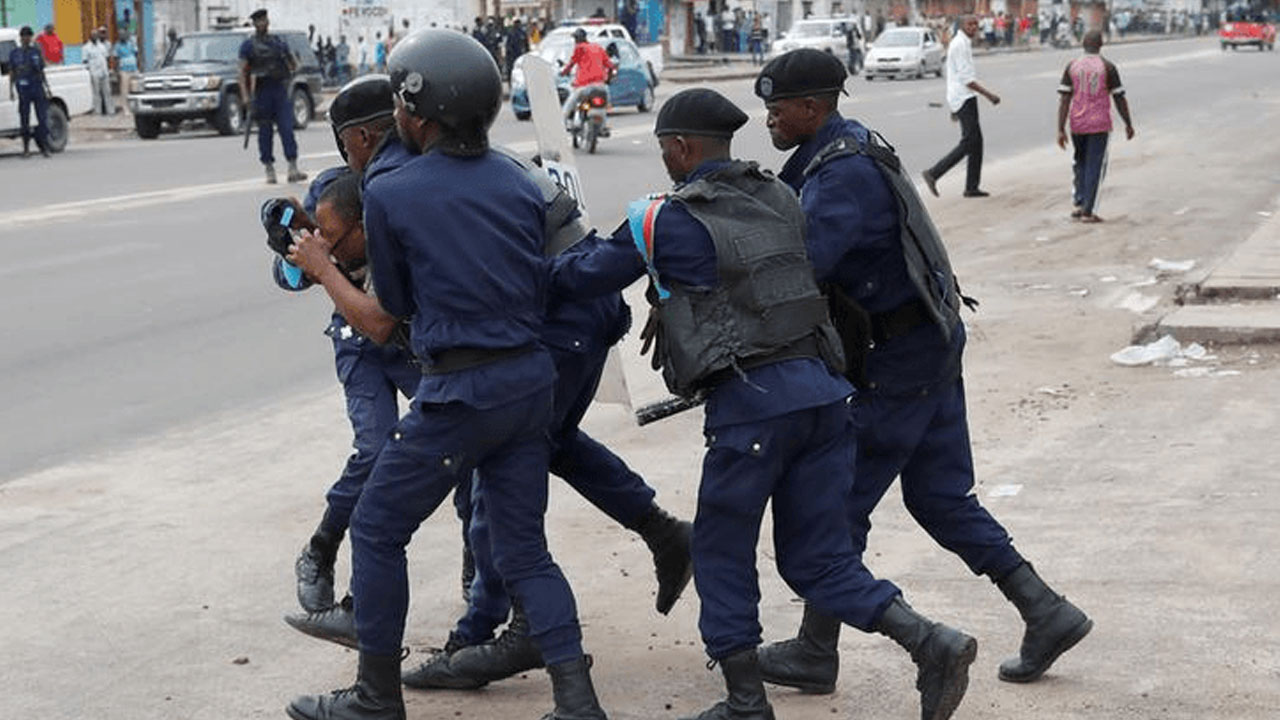
Police in Democratic Republic of Congo on Thursday used tear gas to break up protests in key cities sparked by plans to name a new head to the country’s election panel, AFP reporters saw.
Hundreds of members of President Felix Tshisekedi’s Union for Democracy and Progress (UDPS) were dispersed near the seat of parliament after a three-kilometre (two-mile) march.
A similar-sized rally in Lubumbashi, the DRC’s second-largest city located in the southeast of the country, was broken up by police and troops who used tear gas or fired live rounds into the air.
In Kananga, a UDPS stronghold in the central region of Kasai, three protestors suffered gunshot wounds when security forces clamped down on a demonstration outside party headquarters.
Other protests were reported in south-central Mbuji-Mayi, the eastern city of Beni and in Kisangani, in the northeast.
The protests have been triggered by a decision by the National Assembly to appoint Ronsard Malonda as chairman of the independent national electoral commission, CENI.
Pro-democracy campaigners say Malonda, currently CENI’s secretary-general, has played a historic role in rigging elections in favour of Tshisekedi’s iron-fisted predecessor, Joseph Kabila.
Kabila stepped down in January 2019 after 18 years, following elections that ushered in the DRC’s first-ever peaceful transition of power.
But, say critics, the vote was marred by fraud that denied victory to Martin Fayulu, a fierce Kabila opponent.
Despite leaving office, Kabila wields political influence behind the scenes, and his supporters have a huge majority in parliament, forcing Tshisekedi into an uneasy coalition.
Tshisekedi, who campaigned on a platform of transparency and fighting corruption, has yet to approve Malonda to head CENI.
Protests have been set for July 13 and 19. The interior minister, Gilbert Kankonde, on Wednesday banned all rallies across the country, citing the risk of coronavirus infection.
The DRC has imposed emergency restrictions, which were renewed on Monday for another 15 days.



